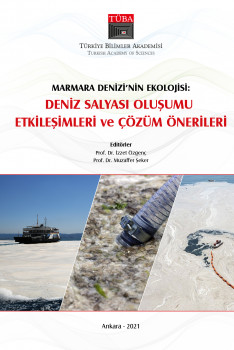Mechanism of Formation, Prevention And Possible Evaluation of Marine Mucilage

Mechanism of Formation, Prevention And Possible Evaluation of Marine Mucilage
As marine mucilage harms aquatic ecosystems, reduces species diversity and damages fishing economy after emerging as a polymeric gel network resistant to chemical and bacterial degradation, it should be prevented at the source before polymerization. This study aims to suggest a hypothetical mechanism for mucilage formation and a low-cost, practical method to prevent mucilage gelation before it transforms into a region-wide ecological problem. The suggested route consists of mixing the stagnant low-saline coastal water with pelagic saline water transferred from a certain depth for preventing the relatively slow polymerization-aggregation reactions in the upper thermocline. This mixing should be carried out in every place where milk-like marine snow colloids start to emerge by pumping saline pelagic water into coastal water irrigated from land freshwater sources. This measure will disrupt and partly dissolve the newly emerging colloidal aggregates that form the background of marine mucilage. Aside from this practical measure, ongoing discussions regarding the possible evaluation of marine mucilage as biofertilizer, biofuel, and biotreatment adsorbent are also mentioned.
